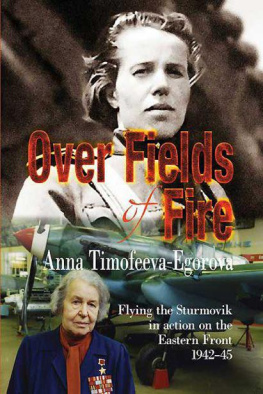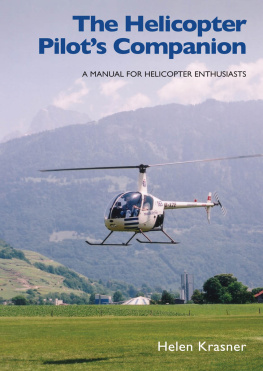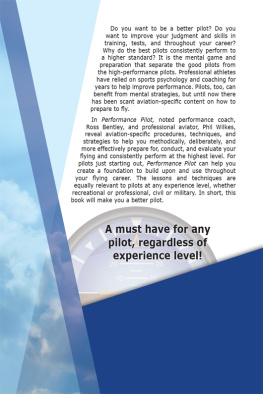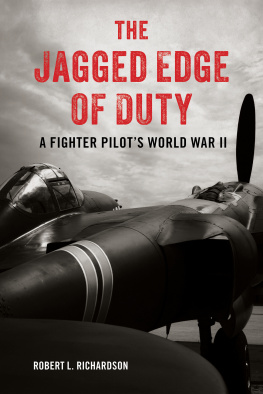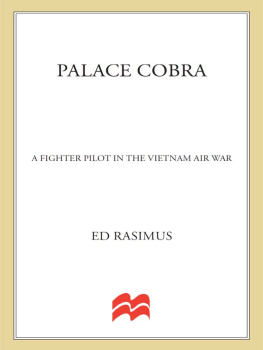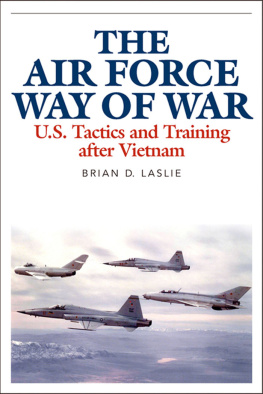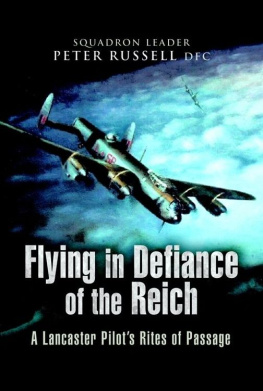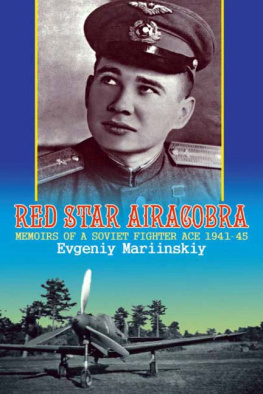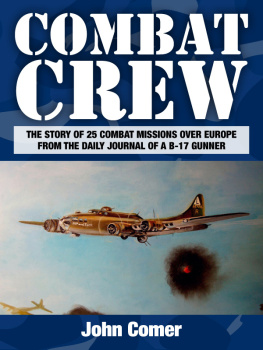

Soviet Memories of War series, edited by Artem Drabkin. Previous volumes in this series:
Volume 1: Penalty Strike. The Memoirs of a Red Army Penal Company Commander 1943 45 by Alexander V. Pylcyn
Volume 2: Red Star Airacobra: Memoirs of a Soviet Fighter Ace 1941-45 by Evgeniy Mariinskiy
Helion & Company Limited
26 Willow Road
Solihull
West Midlands
B91 1UE
England
Tel. 0121 705 3393
Fax 0121 711 4075
Email: info@helion.co.uk
Website: www.helion.co.uk
Published by Helion & Company 2010
eBook edition 2011
Designed and typeset by Farr out Publications, Wokingham, Berkshire
Cover designed by Farr out Publications, Wokingham, Berkshire
Printed by Gutenberg Press Limited, Tarxien, Malta
Text and photographs Anna Timofeeva-Egorova 2008
Text edited by Sergey Anisimov, translated by Vladimir Kroupnik
Publication made possible by the I Remember website (http://www.iremember.ru/index_e.htm) and its director, Artem Drabkin.
Hardcover ISBN 978 1 906033 27 9
Digital ISBN 9781907677557
British Library Cataloguing-in-Publication Data.
A catalogue record for this book is available from the British Library.
All rights reserved. No part of this publication may be reproduced, stored in a retrieval system, or transmitted, in any form, or by any means, electronic, mechanical, photocopying, recording or otherwise, without the express written consent of Helion & Company Limited.
For details of other military history titles published by Helion & Company Limited contact the above address, or visit our website: http://www.helion.co.uk.
We always welcome receiving book proposals from prospective authors.
Led astray by a rainbow
I
d made my choice I was going to be a professional pilot! Nothing else would do! One cannot split oneself into two halves, one cant give ones heart to two passions at once. And the sky has a special claim on one, completely engaging all ones emotions
I remember the send-off as a bright sunny festival, although the day was quite likely to have even been overcast. Butmy friends smiles, laughter and jokes all this so dazzled me and so turned my head, and my joy, overfilling me, so fogged my visionWhen the train had taken off I, by now on the carriage platform, stared ahead for a long time, blinking with half-shut eyes, failing to make anything out
In Ulyanovsk, I rushed straight from the train station to the Venets And what a wonder, above the Volga covered by young December ice, a rainbow began to shine. It threw its multicoloured yoke from one bank to the other across the whole blue sky and this in the wintertime? Yet maybe I had just imagined it? But I was already laughing loudly, sure that it was a rainbow, and that it was a sign of luck. Again just like back at the Kazan train station in Moscow, waves of joy were coming from my chest and their splashes were curtaining the horizon with a rainbow mist. It had been no easy ride exams passed brilliantly, approval given by a nitpicking medical board and I had been enrolled as a flying school cadet!
We had already been issued with uniforms: trousers, blouses with blue collar patches, boots with leggings. It seemed I had never worn a better outfit in my life although it was obviously a bit big for me. In a word I liked everything in the school from reveille and the physical exercises up to marching with a song before bedtime. We studied a lot. I did well in the classes. But onceI still see that day as a terrible dream.
Cadet Egorova! The school commanders calling you.
When I entered the office and reported as one should, everyone sitting at the table met me with silence and just stared at me gloomily. I remember standing at attention and waiting.
Do you have a brother? I heard someones voice, and answered:
I have five brothers.
And Egorov Vasiliy Alexandrovich?
Yes, hes my elder brother.
So why have you concealed the fact that your brother is an enemy of the people?
For a moment I was taken aback.
Hes not an enemy of the people, hes a Communist! I shouted in anger, wanted to say something else, but my throat dried up straightaway and only a whisper came out. I could no longer see the faces of those sitting in the office and heard little only my heart throbbing stronger and stronger inside my chest. It seemed that my brother was in trouble and I knew nothing about itFrom somewhere I heard, like a sentence:
We are expelling you from the school!
I dont remember leaving the office, changing into my civilian clothes in the cloakroom, the gates of the flying school shutting behind me. They had taken the sky away from meThat rainbow had led me astrayI hadnt found happinessAnd again I found myself on a steep river bank, but this time not up on the Venets but far out of town. I searched through my pockets, found my passport, Comsomol membership card, a small red certificate with the Metro emblem on the front the Governments token of appreciation for my participation in the first stage of the Moscow Metro construction. That was all I had.
In agonising torment and anxiety I decided to go to see my mother in the village. There, in my native land of Tver I would be always understood and supported. But I suddenly thought: I havent even got a kopeck not even enough for a passage ticket. And then I headed for the City Comsomol Committee
My native land
B
asically our village of Volodovo, lost in woodland between Ostashkovo and ancient Torzhok, had only one street. By 1930 it had only 45 houses. In summer everyone went to pick mushrooms and berries in the forests and coppices of Glanikha and Mikinikha, in Zakaznik and up on Sidorova Hill. But the main occupation of many generations in our land was flax. When it was in blossom it was impossible to tear your eyes away from the blue sea, and when it ripened it would become a sea of gold! And what great air there was in the many-grassed fields and meadows! And how crystal clear the springs were in Veshnya and Pestchanka, Lotky and Yasenitsa!
After I finished year four of the Sidorovskaya village school my mother decided to send me away to Torzhok and enroll me in a gold-embroidery school. But in a week I began to ask to go home for I understood that I would be unable to sit all day long over embroidery. I had understood even with my childs mind that one has to have to have a vocation for such a craft. They didnt make a gold embroiderer of me. But there was no place to continue my education, for there was no secondary school in our area and my elder brother decided to take me to Moscow.
I liked it at my brothers, especially the warm arms of one-year old Yurka. He wouldnt let me away from him day or night, and if I chanced not to be next to him he would begin crying so, that he awoke everyone in the apartment. I didnt go to school for I had a headstart on studies by two months. I went for walks with Yurka, with children from our courtyard in Kourbatovskiy Lane, helped at home, and ran to the bakery to buy bread.
In the winter they set up a skating rink in our courtyard. With home-made wooden skates tied with strings to our valenki performed in person. My brother took me once to the Bolshoi Theatre. I remember that the opera Prince Igor was on and I remembered Prince Igors aria for the rest of my life.
Looking ahead somewhat I recall that once I would have to listen to this aria as a POW of the Germans. An Italian POW named Antonio would sing it until he was shot dead by the HitleritesYears later when my second son was born I would call him Igor
Next page
